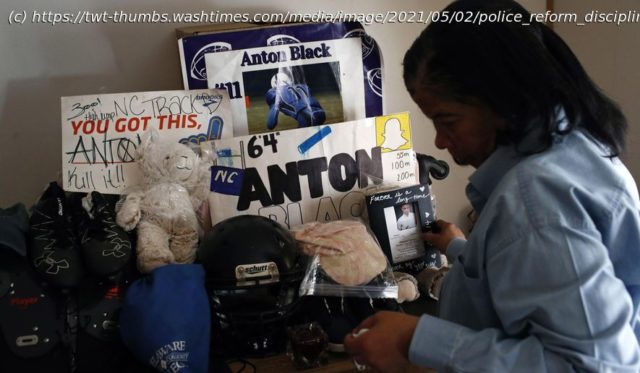Lawmakers in more than 20 states have considered bills this year to make the disciplinary records of police officers public or to share them with …
Lawmakers in more than 20 states have considered bills this year to make the disciplinary records of police officers public or to share them with other agencies, a push that comes amid a rash of high-profile deaths at the hands of law enforcement. About 20 states still largely prohibit their release, however. Supporters of greater transparency say it could help improve police accountability, build trust with the community and prevent officers with disciplinary problems who leave one department from being hired by another. Opponents say the release of such records could harm the reputations of officers with only minor infractions or even put them in danger. They also argue that disciplinary actions are part of personnel records, which are exempt from state open records laws. But amid growing nationwide protests against alleged excessive force by police officers, at least 16 states have contemplated measures to release such records, or summaries of them, publicly. Another eight have discussed making the records accessible to other law enforcement agencies. In Utah, Republican Gov. Spencer Cox signed a bill in March providing legal immunity to law enforcement agencies that share background information about former employees with other agencies looking to hire. State Sen. Jani Iwamoto, a Democrat in the GOP-dominated Legislature, introduced the legislation in response to the case of a University of Utah officer who resigned while being investigated for allegedly sharing explicit photographs of a victim in an alleged extortion case who was later killed. The officer was later hired by police in Logan, Utah, who did not know about the probe. “We want people to feel that they can report a bad cop,” said Iwamoto, who also successfully sponsored another bill to ensure that police disciplinary investigations are completed even if an officer resigns while one is in progress. Without legislation in place, lawyers advised police departments not to share disciplinary records lest they be sued, Iwamoto said. In North Carolina’s Republican-controlled legislature, lawmakers want to create a confidential database from which law enforcement agencies in the state can track all disciplinary actions to prevent officers from hiding past problems when looking for a new job.






